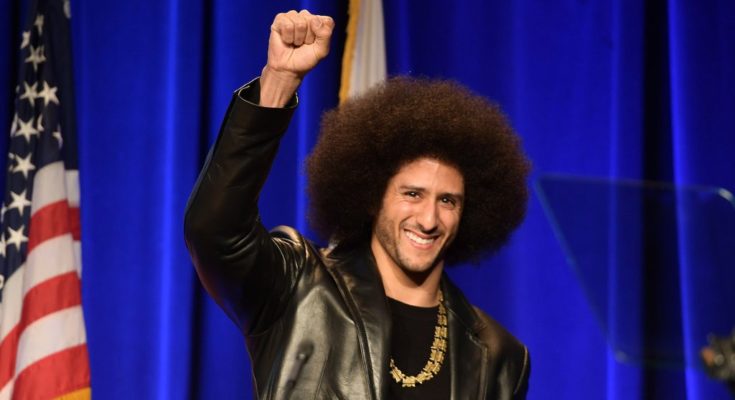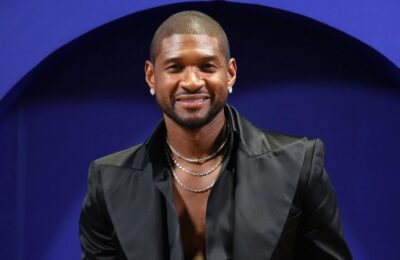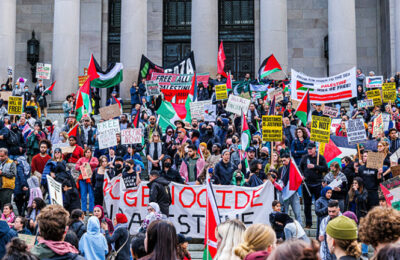In a landmark ruling that substantially alters the complexion of the collusion grievance brought by Colin Kaepernick, arbitrator Stephen Burbank has denied the NFL’s request for summary judgment. Burbank’s ruling means that, absent a negotiated settlement between Kaepernick and the NFL, Kaepernick’s grievance will proceed to a trial-like hearing before Burbank later this year. Burbank’s ruling also indicates that all 32 teams remain parties in the grievance. This is a subtle but potentially groundbreaking point since if Burbank finds that 14 or more teams engaged in collusion, the NFLPA could acquire the option of terminating the collective bargaining agreement.
Why Burbank ruled in favor of Kaepernick
The technical reason for Burbank’s ruling is that the NFL and its teams failed to convince Burbank, a law professor at the University of Pennsylvania Law School, that they had met the necessary standard for summary judgment. Under Article 17 of the CBA, Burbank would have granted summary judgment if Kaepernick hadn’t shown enough evidence sufficient to raise a genuine issue of material fact.
The “genuine issue” is whether the 30-year-old Kaepernick has been victimized by collusion, which in this context refers to two or more teams, or the league and at least one team, conspiring to deprive Kaepernick of his collectively bargained right to sign with a team. Kaepernick, who earlier in his career led the 49ers to a division championship and a Super Bowl appearance, contends that teams have conspired to keep him out of the NFL. They have allegedly done so on account of the controversy surrounding his kneeling during the playing of the national anthem.
A key element of Kaepernick’s argument is that owners are fearful about the capacity and the willingness of President Donald Trump—an ardent critic of Kaepernick and of other players who kneel during the anthem—to damage the league’s business and legal interests. Such a concern was documented in audio recordings of owners during an October 2017 meeting that centered on Kaepernick and the national anthem. This same concern resurfaced in June 2018 when Trump rescinded a White House invitation to the Super Bowl champion Philadelphia Eagles on account of his perception that Eagles players disagreed with him on the anthem (in reality, not one player on the Eagles kneeled during their Super Bowl season).
To be clear, Trump opining about Kaepernick or even the President openly discouraging owners from signing Kaepernick would not prove collusion. Trump, for purposes of the CBA, is merely a third party. Collusion requires some combination of governed parties—be they multiple teams or the league and at least one team—colluding. Still, if owners joined hands to exclude Kaepernick because of their reaction to Trump, the President would become a relevant person in Kaepernick’s grievance and even a potential witness.
Kaepernick, who hasn’t been offered an NFL contract since he opted out of his deal with the San Francisco 49ers 547 days ago, filed his grievance on Oct. 15, 2017. Since that time, his legal team has deposed a targeted group of owners and executives. This group includes NFL commissioner Roger Goodell, Dallas Cowboys owner Jerry Jones, Houston Texans owner Bob McNair, New England Patriots owner Robert Kraft and Denver Broncos general manager John Elway.
Elway recently shared his depiction of his testimony in response to a press conference question posed by The Athletic writer Nicki Jhabvala. Elway’s answer raised questions about why he was interested in paying Kaepernick $7 million in April 2016 but not at all interested in Kaepernick in March 2017—especially after Kaepernick had played better in the 2016 season than in the previous campaign. Burbank might have interpreted Elway’s changed position as related not to Kaepernick’s play but instead to Kaepernick’s anthem protests, which began in August 2016.
Other owners and officials were targeted for different reasons—and their responses were surely studied by Burbank. Kraft, for example, was of interest to Kaepernick’s attorneys because he flew with Trump on Air Force One on March 19, 2017. One day later, Trump, in a much-publicized speech in Louisville, sharply criticized Kaepernick and his anthem protests. It was the first time the President had done so publicly. Kaepernick’s attorneys—led by Los Angeles attorneys Mark Geragos and Ben Meiselas—likely asked Kraft about whether he and Trump had discussed Kaepernick on Air Force One.
While NFL officials and owners have steadfastly denied that there is any conspiracy to deny Kaepernick a chance to play, Burbank clearly believes that the matter necessitates more scrutiny. Burbank has reviewed witness testimony and related evidence, possibly including video, audio recordings, texts, emails and written memoranda. He has reached the decision that a trial is warranted.
The pending trial and the significance of Burbank—and not a jury—presiding over it
Burbank has not announced when the trial will occur, but it will most likely happen before the end of the year. Keep in mind, the forthcoming trial won’t be a “trial” as that term is commonly understood. There will be no jury, Burbank won’t be robed as a judge and it will all be conducted in private. This is because Kaepernick’s “trial” is technically an arbitration hearing. The term “trial” is used mainly out of convenience and because it will resemble a trial in many ways—evidence will be presented and attorneys for each side will question witnesses, who will testify under oath and swear to tell the whole and complete truth. (Courtesy of SI)





